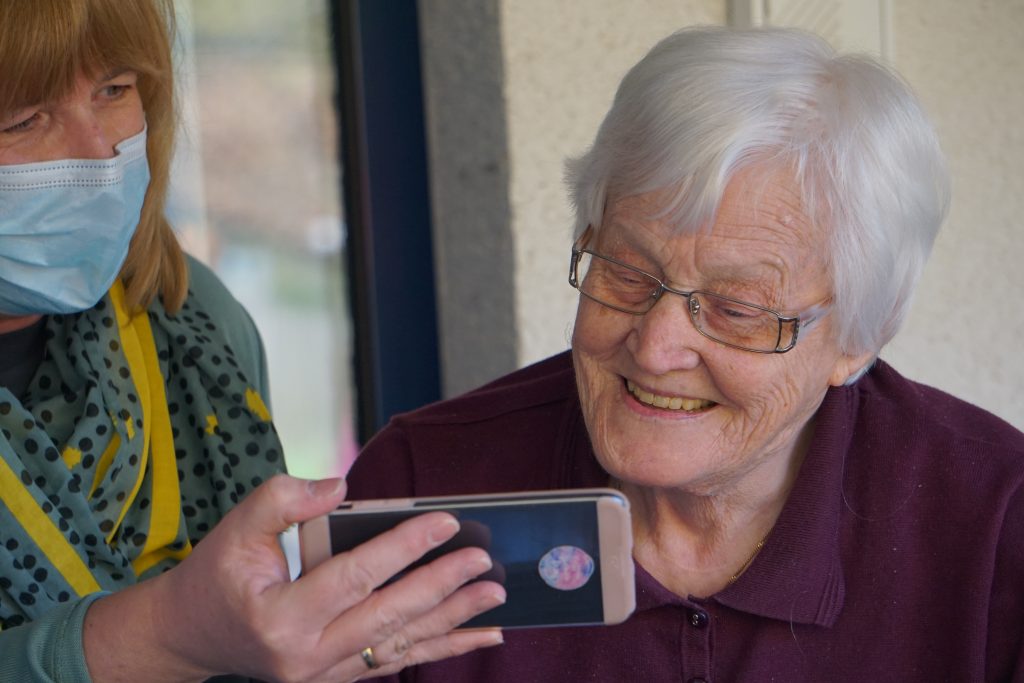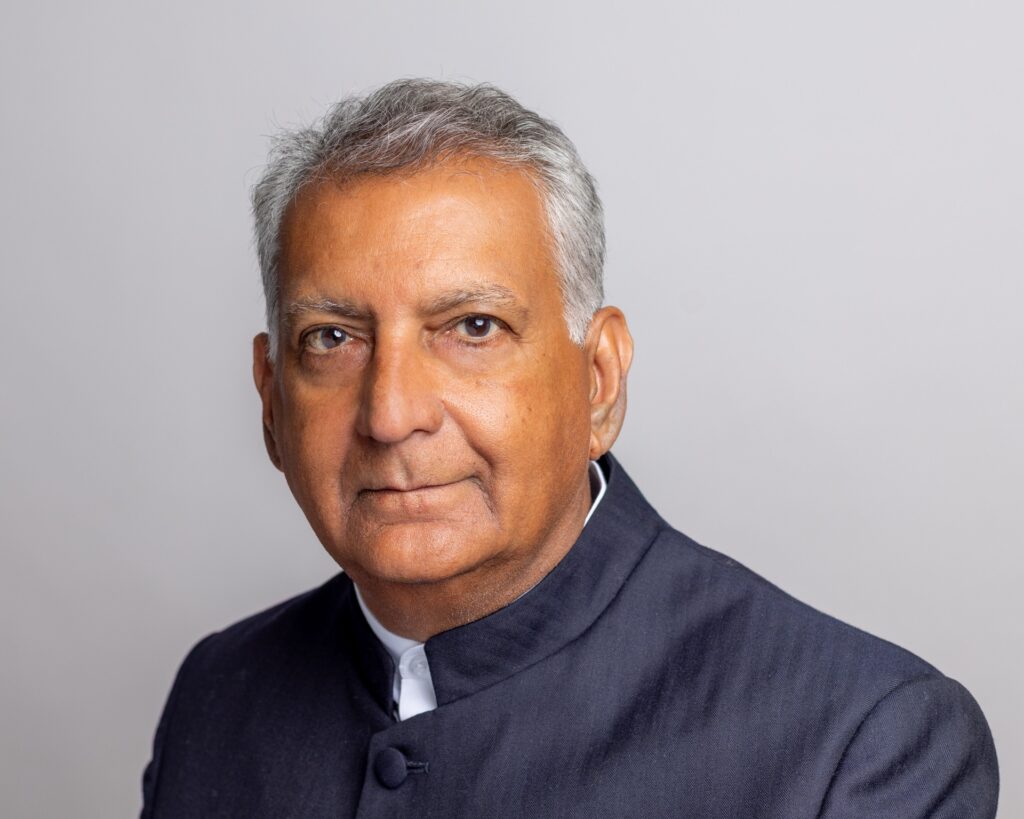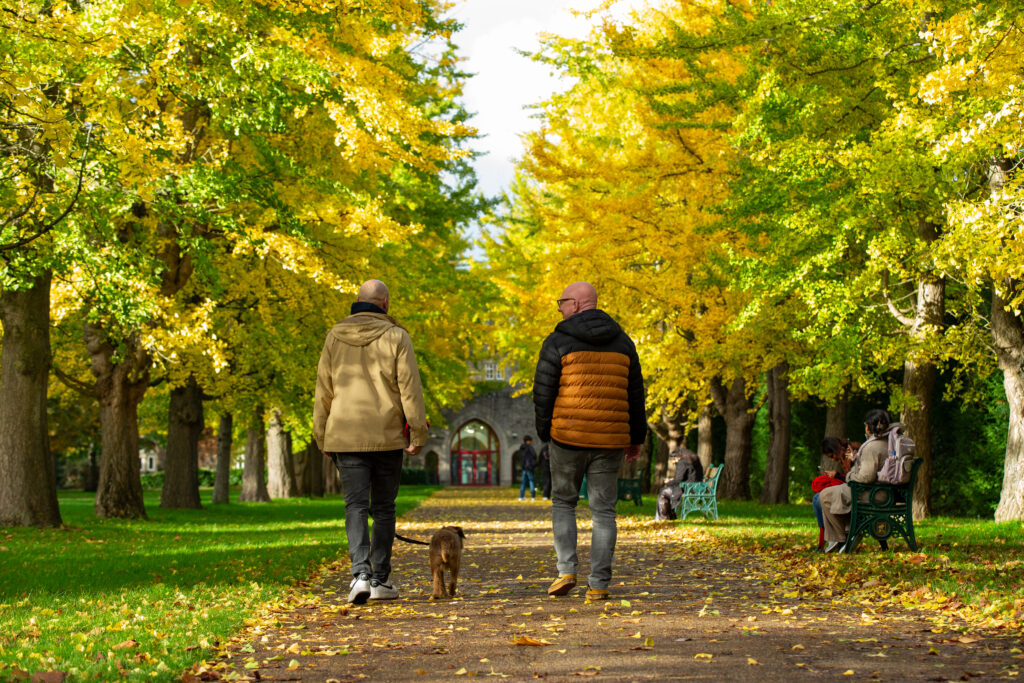Cllr Chris Davies, Chair of the Cwm Taf Morgannwg Regional Partnership Board, argues that we should learn from community initiatives to drive change beyond Covid-19.
Regional Partnership Boards have a statutory duty to meet the care and support needs of people in their area. As RPBs across Wales develop their Population Needs Assessments, Cllr Chris Davies, Chair of the Cwm Taf Morgannwg Regional Partnership Board, says nurturing the strong community bonds built over the pandemic is the key to driving sustainable change.
It’s been about seventeen months since Prime Minister Boris Johnson gravely told us: “you must stay at home”.
That moment was akin to being strapped into a rollercoaster heading into a dark tunnel. We didn’t know what to expect, and many of us didn’t realise how hard it would be.
Those looking at pictures of the pandemic in the future will slide through a carousel ranging from the sheer horror of people on ventilators to the kindness of strangers in the darkest of times.
The pandemic has shown the importance of compassion, togetherness and support. That is why as a Regional Partnership Board our purpose is to bring together health, social care, third sector, education, housing and the private sector to tackle inequalities and improve health and wellbeing outcomes for our communities.
“The COVID-19 pandemic has exacerbated existing issues, including the mental health crisis, poverty and unemployment.
As a Board, we have a huge responsibility to the people living in Bridgend, Merthyr Tydfil and Rhondda Cynon Taf. We manage and distribute millions of pounds of Welsh Government Transformation and Integrated Care Fund monies, in addition to overseeing the highly important Protect element of the COVID-19 Test, Trace and Protect strategy.
This year we are undertaking a Population Needs Assessment (PNA) which looks at what health, social care and wellbeing services are needed, and where resources should be allocated.
The COVID-19 pandemic has exacerbated existing issues, including the mental health crisis, poverty and unemployment. It is our responsibility to ensure we work together with our residents to find out what support and services people need, so we can create a better, fairer and more equal future.
While the pandemic has been devastating, it has shown what can be achieved if we remove barriers, connect, and work more closely together, not just with professionals, but with the people living in our towns and villages across the communities we serve.
“It is fair to say our volunteers have been a lifeline for people.
Thanks to our fantastic third sector partners, we know that hundreds of volunteers have rallied over the past year to give support. Schemes funded through the Integrated Care Fund and Transformation COVID response funding enabled community groups to befriend, shop and collect food and prescriptions for those most in need.
The Building Resilient Communities Programme in Bridgend, for example, has brought together volunteers, community groups and partners to connect people to a range of support, including financial advice, mental wellbeing and carer support. One person supported by Gail, a Community Navigator working for the programme, said the help she has received has been a “godsend”.
The incredible ‘Vacci Taxi’ service led by Age Connects Morgannwg has been made possible by a group of volunteers. The service ensures people can get to vaccine appointments regardless of transport or access issues. With 160 trips undertaken over the equivalent of 4,000 miles, people have been able to get the protection they need from this devastating virus.
It is fair to say our volunteers have been a lifeline for people.
Gofod i drafod, dadlau, ac ymchwilio.
Cefnogwch brif felin drafod annibynnol Cymru.
I have also been struck by how quickly we have been able to work together as partners. Overnight our local authorities, health and third sector organisations came together to provide much needed support for our local communities.
Thanks to the tenacity and dedication of those working in our region, we were able to quickly establish Wales’ first self-isolation advice line for the Cwm Taf Morgannwg region.
“Decisions should be co-designed and driven by communities to have a real impact.
The advice line aims to help people who have been asked to self-isolate by the Test and Trace team by offering advice, information and support. For example, somebody from Bridgend who is experiencing loneliness may be put in touch with a local Bridgend befriending service to ensure they have somebody to talk to throughout their time at home.
We cannot lose the momentum, support and kindness that has been shown. We must reflect on the lessons we have learnt, the conversations we have had, and the people we have met.
I am a professional, but I am also a person living in the community.
Our communities are made up of our friends, our family, and our neighbours. For a sustainable future, it is essential decisions are co-designed and driven by communities to have a real impact.
That is why when developing our Population Needs Assessment —which we are integrating with the Bridgend and Cwm Taf Public Services Board’s, Wellbeing Assessment—we are taking a co-productive approach.
This is an opportunity to drive a new way of working. We are not looking to develop an assessment that reinforces a ‘top down’ vision of community need. Instead, we will be creating the report with our communities, asking them what they need, and asking them to reflect, develop and evaluate the findings with us.
“We have a vision to involve, listen and take action with our communities.
As a Regional Partnership Board, we fund a project called Our Voice Matters, which aims to give citizens an opportunity to inform and influence changes to the Health and Social Care Services they receive. The project has worked closely with our RPB priority groups to identify engagement barriers and offer solutions. Our priority groups include vulnerable populations such as children and young people; older people; people with learning disabilities; people with physical disabilities and sensory impairments; people with dementia; people with mental health problems; and unpaid carers and autistic people.
We know from the insightful report published by Our Voice Matters and from research we have directly commissioned that people want to be involved and listened to. They want their voices to be reflected in the decisions that are made.
To make this happen, we are working towards developing a Regional Involvement Pathway that will help advocate for and support residents in the community.
As a Regional Partnership Board, we have a vision to involve, listen and take action with our communities to make a real difference to people’s lives. To do this, we must pause, reflect, and listen to what people are telling us.
To develop our Assessment of Wellbeing and Need, we will be undertaking a ‘100 Days of Engagement’ programme to ensure we are giving as many people as possible an opportunity to have their voices heard.
“We can only facilitate and enable positive change through our strong partnerships.
We want to find new and interesting ways to engage people, to give them the confidence and tools to have meaningful conversations. I recently took part in a great event at Gilfach Goch Community Association with children and young people. Through the power of music, art and writing, the attendees were able to express themselves in a way that is meaningful to them. And that is the key to unlocking what is important to people.
By finding new ways to reach people who may feel unheard at the moment, and building trust, support and relationships with our communities, we can then understand where the issues are, and what needs to be done to improve people’s lives.
We can only facilitate and enable positive change through our strong partnerships. It is fantastic the Community Action Group that will be overseeing the Assessment of Population and Wellbeing Need will have representation from health, social care, education, housing and the third sector, in addition to people with lived experiences.
The ties that bind us are through our shared experiences. Whatever our backgrounds, nothing has brought us together more during the last seventeen months than this hugely challenging and turbulent time.
Let’s not lose it: let’s nurture these relationships, and let’s act together to ensure we can build on what has been gained during a time of loss.
If you are reading this, and would like to get involved in our Assessment of Wellbeing and Need please visit our website page here.
All articles published on the welsh agenda are subject to IWA’s disclaimer.





